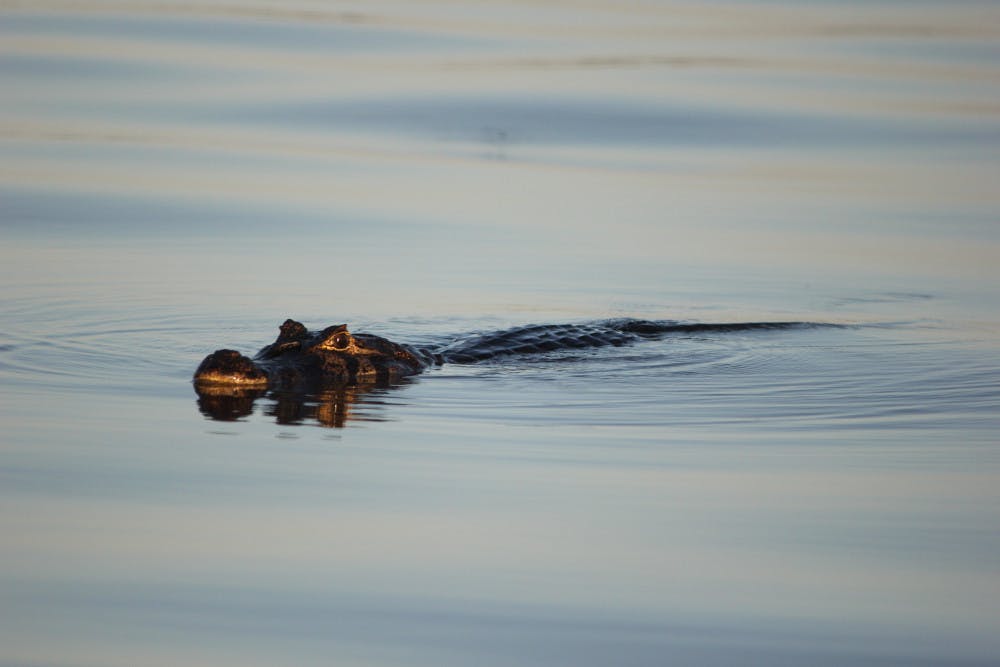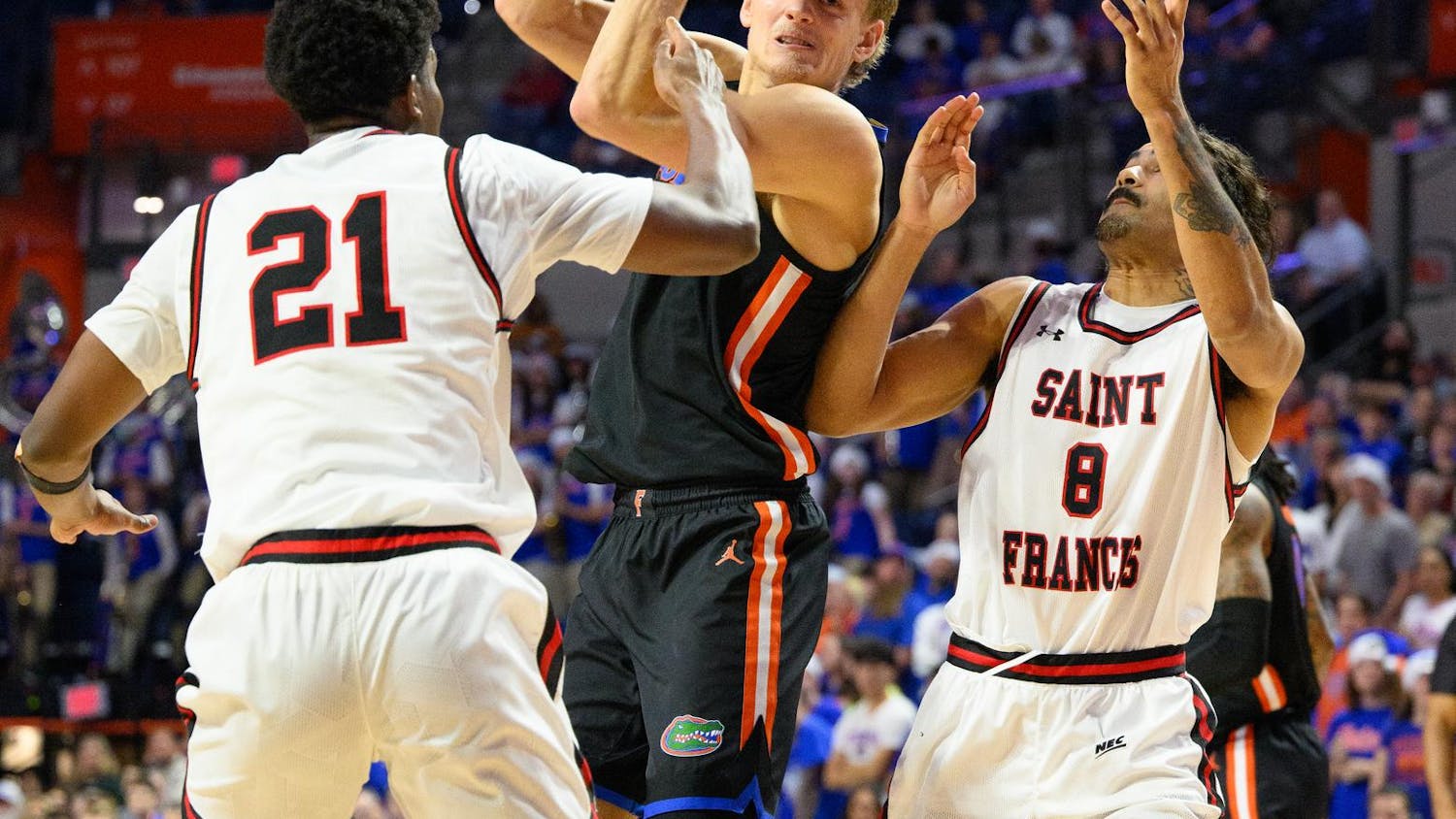Last semester, we sat in the back of the class with our heads down and our mouths sealed shut. When we spoke, we prefaced our remarks or questions with “I just…” or “Sorry, this might be dumb,” conveying to our listeners that what would follow was of little importance. We would not blame them for disregarding our words, ideas and opinions; but we knew the right answer, we had something to add to the discussion and we had questions that warranted responses. We minimized our presence, our impact and our power. We made our voices small and let our classmates fill up the space. Our classmates who sat in the front. Our classmates who always had their hands raised. Our classmates who punctuated their statements with periods, not question marks. We chose to keep our depths hidden rather than make ourselves vulnerable.
Living and attending college in Florida, we have seen plenty of the infamous alligators our dangerous state is known for. Or at least, we have seen parts of them: mostly eyes and snouts, and lots of lumps that turned out to be benign logs. Like us, alligators hide the bulk of their being. They keep their bodies submerged so their prey won’t be alarmed by their presence and size. When we spot one of the primal creatures peeking at us from the murky, vegetation-strewn waters of the La Chua Trail, we have no idea the extent of their hidden mass. It is only when we encounter one sunbathing on the shore that we can appreciate their glorious form. When we are lucky, we see them before they see us, quickly take some Snaps to document the close encounter and turn around. If we aren’t so lucky, we may not even realize one of the statue-like beasts is present until a baffling, terror-inducing hiss reaches our ears. That’s right, alligators hiss. Not like a snake hisses. Alligator hisses are the deep-throated sounds of a monster awakening.
This semester, we are waking up. We have relied on others to speak, to raise their hands and to make the arguments that we were silently making in our heads. We have become complacent in our passivity, but the world won’t let us “just” be any longer. Our naps in the sun are being interrupted. People aren’t watching where they tread, and we are about to be stepped on. It is time for us to hiss. It is time to put everyone on notice that we are here, we are powerful and they better rethink their course of action. Our voices may shake at first, but that rattle will morph into a growl.
We are the new Editorial Board of the Independent Florida Alligator. We are four women with strong voices and opinions. Amanda Rosa, Editor-in-Chief, is a journalism senior at UF. In a world where the importance of truth is matched only by its scarcity, Rosa’s truths are that Latin American history matter, drag culture reigns and Hozier is unforgivably underrated. Kelly Hayes, Digital Managing Editor, is a UF political science and journalism senior. To her doom, she arrogantly believed her figurative “Breastplate of Irony” protected her from the perilous TikTok, and now she is the un-ironic champion of the Alligator’s TikTok account. When Hayes wishes on a star, it’s for a respectful upcoming political season filled with fair opinions from all corners. Tranelle Maner, Engagement Managing Editor and #walkingmeme, is a UF journalism senior. If Mr. Social Media was a contestant on The Bachelorette, he would get a red rose from her every single week. Elizabeth Tubbs, Opinions Editor, is a second-year UF law student. She excels at leaping before she looks, panicking mid-air, flailing wildly and then landing very hard nowhere near her target. She hopes to get a full refund on the strictures of her conservative, southern, purity-culture upbringing but without a receipt she isn’t very optimistic, so they sit in her closet, taking up space in a large black trash bag.
Nice to meet you, reader. Hiss.
The Editorial Board consists of Elizabeth Tubbs, Opinions Editor; Amanda Rosa, Editor-in Chief; Kelly Hayes, Digital Managing Editor; and Tranelle Maner, Engagement Managing Editor.






